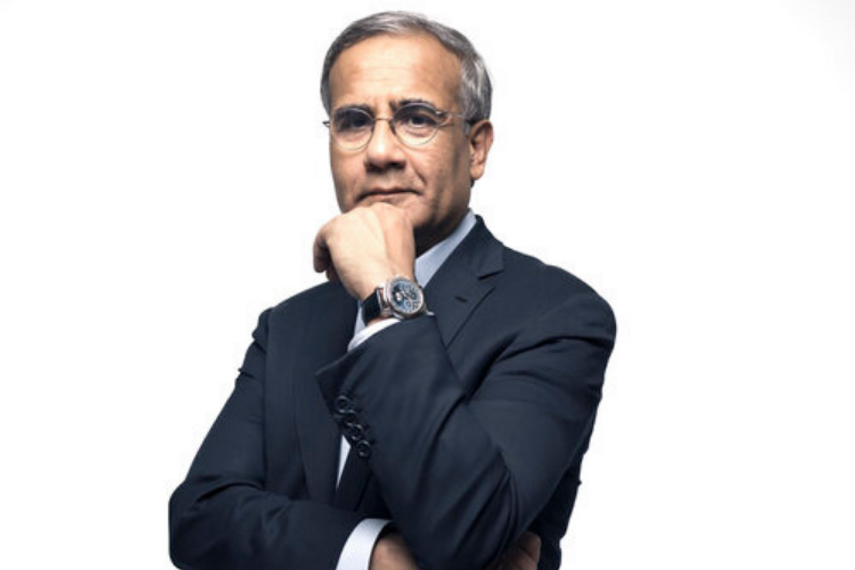
For any marketer to stay ahead of the game, re-invention plays a pivotal role as it needs to be on par with evolving consumer trends. This need has become critical as we enter into Web 3.0 innovations.
However, with an array of technological expansions, communicating with a consumer can no longer be linear.
In conversation with Campaign India, Rishad Tobaccowala, author, speaker, educator, and advisor, reiterated this view of digital communications and shared that brands need to recognise that we are moving into an omnipresent world and will need to have a presence everywhere be it in voice advertising, AR, ML, and other virtual realities.
The former chief strategist and chief growth officer at Publicis Groupe, detailed how a brand can remain core to its purpose while employing digital innovations, his 'ABCDE' framework and how marketers can go wrong with data insights during this chat.
Edited excerpts:
With a focus on digital practices in the marketing ecosystem, how should a brand remain core to its purpose?
Everything stems from two areas of a brand. One is the purpose of the brand, and the second is insights and understanding of a consumer. These two areas become the compass points. Everything else is nothing but different shades for them to paint a picture. But the picture won't be a masterpiece if there are no insights or purpose on the palette.
What are the different strategies to stay ahead of the game and evolve in the digital marketing realm?
Regardless of where you are in the organisation, be it in an entry-level position or a senior, time should be spent learning and using different technologies. There are too many people in managerial roles, who don't utilise these technologies. If it's not utilised it's impossible to understand how they work. These managers begin to manage people who know those technologies and opt-out of them.
Using technology in a company enables anyone to manage it better. It also helps in looking at things creatively because of the hands-on experience garnered.
Could you give us an insight into your ABCDE framework?
We make marketing complicated at times by talking about too many things.
The idea is that there are only five components driving marketing which is ABCDE (audience, brand, content, data and enterprise). The key is to find out how they (consumers) are shifting and adapt to those trends.
With Web 3.0 becoming more prominent, how can brands leverage and gain consumer interest with these future-oriented technologies?
Web3 is going to be a reality soon and will scale over the next few years. I strongly encourage brands to learn about it, experience and experiment. But, I don't think they can expect any business results just yet due to limited audiences. But the reason to venture into it is to start learning and getting your organisation ready for it. So that as it scales, the organisation isn't blindsided. A lot of people make the mistake of promising numbers, hype, and a whole bunch of things early on that won't come to fruition at this moment.
ROI is at the pinnacle for any marketer, what should be the next unanimous trend to gain digital data that can be beneficial to digital publishers as well as advertisers?
Currently, the problem is not about money or investments. It is about resources and time. So, we should be thinking about return on effort instead of ROI, because it also shows how we can organise ourselves for maximum results in a limited time frame. Additionally, we need to question whether what we're measuring is accurate or not.
Speaking about data, where can a marketer go wrong in cumulating data for their campaigns?
Marketers go wrong in thinking that data is the answer. It’s people working with data that should be under the spotlight. I believe that how you read data, extract from it and gain insights is very important.
With the elimination of third-party cookies, how will the digital marketing landscape change?
In addition to having major issues when it came down to privacy clutter, false media, and arbitrage, third party cookies gave too much power to digital companies like Facebook and Google.
It's going to be a little bit more about going back to the future, and it'd be more powerful. Marketers need to have as much power as they can. It will be about having a more spread out media landscape. A lot more contextual advertising and storytelling will come to the forefront with the elimination of third-party cookies which will help brands scale.


.jpg&h=334&w=500&q=100&v=20250320&c=1)
.jpg&h=334&w=500&q=100&v=20250320&c=1)



.jpg&h=334&w=500&q=100&v=20250320&c=1)
.jpg&h=334&w=500&q=100&v=20250320&c=1)


.jpg&h=334&w=500&q=100&v=20250320&c=1)

.jpg&h=268&w=401&q=100&v=20250320&c=1)





